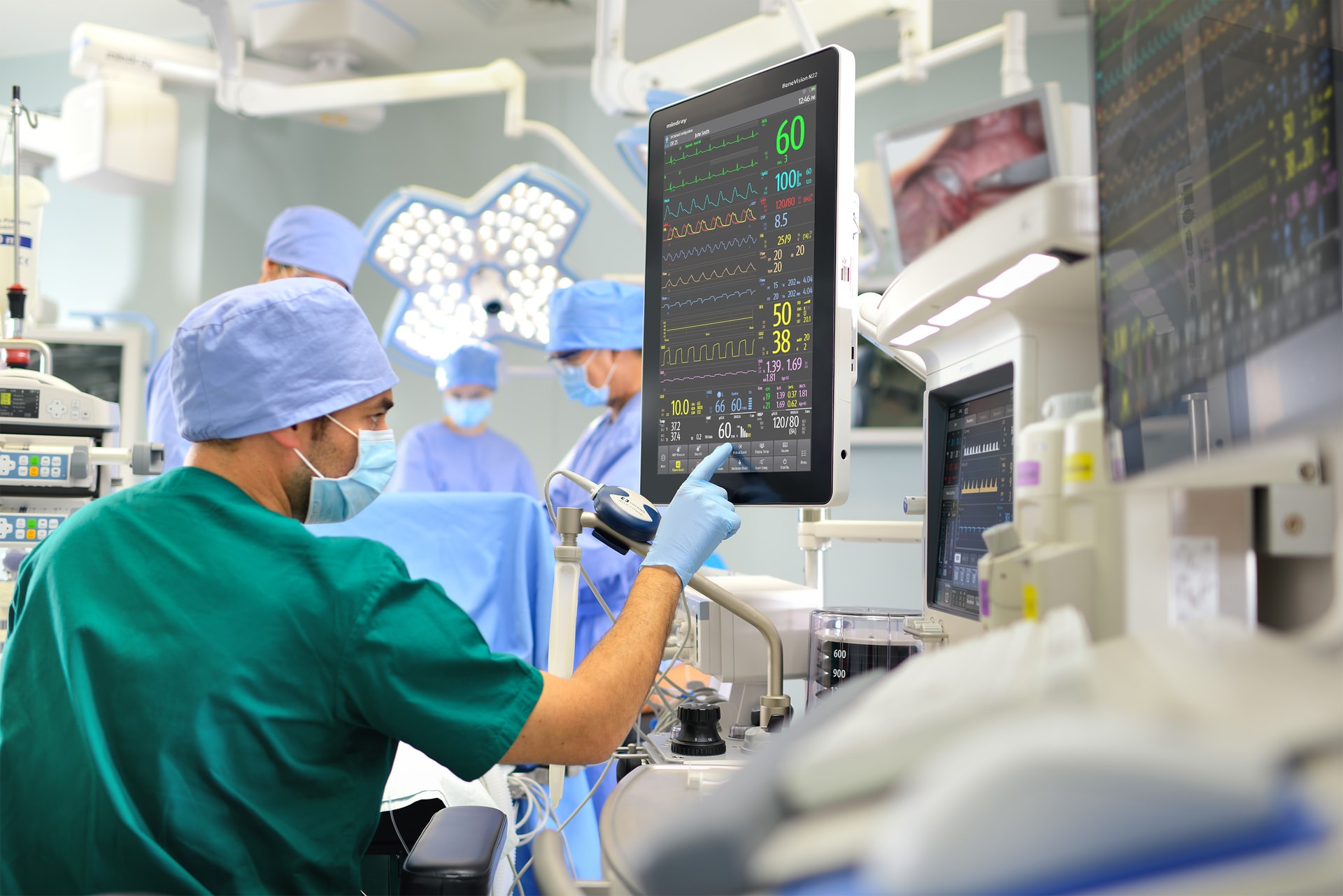
The hepatobiliary system is a collection of organs and glands which aid in digestion and other bodily processes. With such a complex system, it should come as no surprise that hepatobiliary surgery can be equally difficult to understand.
The hepatobiliary system is comprised of the liver, gallbladder, bile ducts, and pancreas. Problems with the system can stem from blockages, injuries, cysts, or cancer affecting its various parts. With such a complex biological system and surgical methods, you should put your trust in the experts at Evansville Surgical Associates for your procedure.
To get a better understanding of hepatobiliary surgery, we’ll look at:
- What is the hepatobiliary system?
- When do I need hepatobiliary surgery?
- Why you should choose Evansville Surgical Associates for your hepatobiliary surgery
The complexity of the hepatobiliary system and methods of treatment can be difficult to wrap your head around. Keep reading to have many of your questions answered and be more prepared for your procedure.
What is the hepatobiliary system?
The hepatobiliary system is comprised of the liver, gallbladder, bile ducts, and pancreas. While that may not be easy to say five times fast, the word actually makes a lot of sense if you break it down into its parts.
- Hepato = the liver
- Biliary = the gallbladder and bile ducts
This system is essential for digesting fat and removing waste from the body. But the hepatobiliary system isn’t simply one part of your body. In fact, it’s made up of some very important organs that you have probably heard of but were never exactly sure what they do!
To get a clearer picture of what the hepatobiliary system is and what it does, we’ll take a look at its different parts and what they do. This will help you be more knowledgeable as your doctor helps you prepare for surgery as well as what to expect during recovery.
The Liver
The liver is a large organ located on the right side of your abdomen. It can be broken down into two sections—the right lobe and the left lobe. You’d think you’d be more aware of your liver since it weighs about three pounds. However, this reddish-brown organ often goes unnoticed since it’s located behind the rib cage.
The liver is an extremely important part of your digestive tract. This is because blood is filtered through it before being pumped through the rest of your body. The liver is also essential for metabolization and detoxification. In this way, it metabolizes any prescription drugs you may be taking as well as removes any toxic chemicals that may be in your body.
The Gallbladder
Located under your liver, the gallbladder is a small, pear-shaped organ that your body uses to store a liquid known as bile. The gallbladder also aids in its production and transportation. Your body produces bile in the liver and releases it when you eat to help support the digestion of fat and specific vitamins. While probably the most efficient way to transport bile, it’s not entirely necessary since bile can be transported in other ways.
Bile Ducts
Bile ducts resemble small tubes and are how bile is moved from the liver and gallbladder to the duodenum, more commonly known as the small intestine. When food needs to be digested, the greenish-yellow bile is released from the gallbladder into the upper intestine to help aid in the digestion of fats from the food you consume.
Pancreas
Like other parts of the hepatobiliary system, the pancreas is located in your abdomen. More specifically, near your spine in the back of your upper abdomen. The pancreas works with the liver and bile ducts to help with digestion.
The pancreas produces pancreatic juices that aid in digestion along with bile from the liver, assisting in the breaking down of food and allowing for nutrients to be absorbed more easily and used by your body. It does this through the use of drainage tubes that, like bile ducts, transfers pancreatic juices into your small intestine.
When do I need hepatobiliary surgery?
Hepatobiliary surgery becomes necessary when something is wrong with your body’s hepatobiliary system. This could be due to diseases or problems such as:
- Blockages
- Portal hypertension
- Cysts
- Injuries to the bile duct
If cancer is located in the hepatobiliary system, you may have to undergo surgery for the removal (resection) of primary and secondary (metastatic) tumors in your:
- Liver
- Gallbladder
- Pancreas
These procedures can become increasingly complex and require major resections. In these cases, complicated reconstructions of bile ducts and other parts of the hepatobiliary system may be necessary.
Why You Should Choose Evansville Surgical Associates for Your Hepatobiliary Surgery
It should be clear by now that your hepatobiliary system is extremely important to your overall health and quality of life. This is also why you should only trust the best for your procedure. Our team at Evansville Surgical Associates includes hepatobiliary specialists Dr. Chandra Cherukupalli and Dr. Andrea Jester who work with your referring physicians to ensure that you receive the highest quality of care.
Types of Hepatobiliary Surgical Procedures
Hepatobiliary surgical procedures can come in many forms. These include liver resection, pancreatic resections, and cholecystectomy. Liver resections are common if a tumor is found in the organ or in the case of certain metastatic colorectal cancers. The surgeon will completely remove the tumor along with any surrounding tissue that may contain traces of the tumor.
Pancreatic resection is often performed for both cancer and benign diseases. They can be performed laparoscopically depending on the process of the disease. Cholecystectomy involves the complete removal of the gallbladder. This may be due to gallstones, inflammation, or polyps.
Cholecystectomy procedures are one of the most common surgical procedures we perform at Evansville Surgical Associates. In fact, we’ve performed over 40,000 cholecystectomies over the past 20 years! With that level of experience and expertise, it’s clear why you should choose Evansville Surgical Associates for your hepatobiliary surgery.
The hepatobiliary system is a collection of organs and glands which aid in digestion and other processes. Issues with the hepatobiliary system can include blockages and cysts, as well as cancer of the liver, gallbladder, and pancreas. Hepatobiliary surgery is a complex family of surgical procedures that we’ve been performing for 20 years. With that level of experience, it’s clear that Evansville Surgical Associates should be your top choice for hepatobiliary surgery.
Evansville Surgical Associates has been providing comprehensive and compassionate surgical care for over 50 years. Call us at (812) 424-8231 or (800) 264-8231, or email us with any general questions or comments you may have. We are available from 8:00 am to 4:30 pm if you would like to schedule an appointment.



